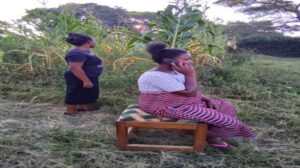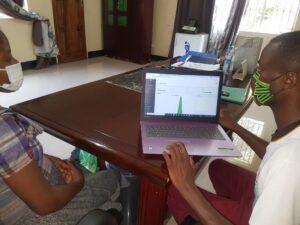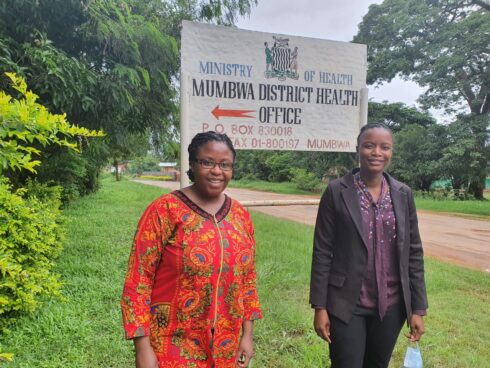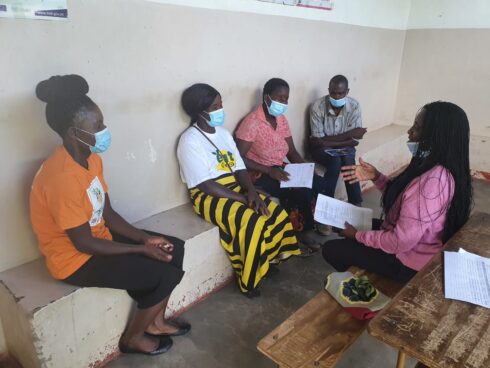Background: Since the start of the COVID-19 pandemic, healthcare has seen the adoption of several digital solutions with the goal of accelerating progress towards the Sustainable Development Goals and Universal Health Coverage.
The Bornfyne Mobile Application system, introduced in Cameroon in 2018, is a digital application which aims to increase access to maternal health services in rural parts of Sub-Saharan Africa. The tool offers digital health technology adapted for resource-poor settings, with potential to reduce maternal and neonatal morbidity and mortality, and further potential to support COVID-19 response.

Expectant Woman using a mobile phone to communicate to a Doctor in Nakanjoli village, Mumbwa- Zambia
Objective: This study aims to assess the feasibility of enrolling women into the Bornfyne-PNMS project using household mobile phones and to increase awareness of COVID-19 in Mumbwa District, in the Central Province of Zambia.
Methods: A cross sectional study was conducted in two selected communities of Mumbwa district between October 2021 and November 2021. Community health volunteers and the District Medical team mapped out households in the catchment area and administered 470 surveys… Ethical approval and authority were obtained from Ethics committee and the Ministry of Health respectively in support of the study. Descriptive statistics was done using STATA software.

Midwife attending to a pregnant woman using the Bornfyne -PNMS platform in Mumbwa District- Zambia
Results: Preliminary results indicate that of a total of 429 households surveyed, 424 (90.0%) had 1 or more pregnancies in the past year?? while 383 (81.5%) were not vaccinated against COVID-19. Further, of the total 429 households, 219 (51.0%) owned a mobile phone, 133 (30.5%) owned a smart phone. 380 (81.55%) were willing to receive medical advice and 414 (88.1%) were willing to listen to COVID-19 specific advice through the phone,
Conclusions: This baseline preliminary survey demonstrates that the use of digital innovations such as the Bornfyne PNMS is feasible in a rural district such as Mumbwa as a means to share reproductive and maternal advice, including advice on COVID-19 with potential to reduce maternal and neonatal morbidity and mortality in rural settings.


